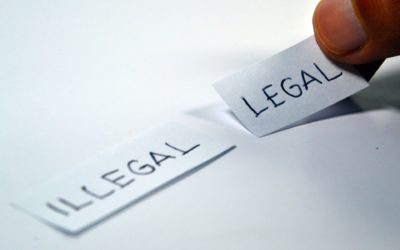European Enforcement Order: all you need to know
The T itre European Enforcement Agency was created by the European Parliament Regulation (EC) No 805/2004 and of the Council of 21 April 2004 creating a European Enforcement Order for uncontested claims and entered into force on 21 October 2005.
itre European Enforcement Agency was created by the European Parliament Regulation (EC) No 805/2004 and of the Council of 21 April 2004 creating a European Enforcement Order for uncontested claims and entered into force on 21 October 2005.
What is the European Enforcement Order?
The European Enforcement Order (EEO) enables individuals and companies in the European Union (with the notable exception of Denmark) to enforce a civil or commercial court decision throughout the European Union, regardless of their nationality.
The EEO is a court decision, court settlement or authentic instrument relating to uncontested cross-border claims and benefiting from a certificate allowing it to be enforced without the need to return to a judge.
The European Enforcement Order enables the enforcement of judgments, court settlements and authentic acts established in the European Union, except Denmark.
He's exempt from a procedure ofexequatur in the State of enforcement of the decision.
Limits to the European Enforcement Order :
The European Enforcement Order has certain limitations.
Thus, in the first place, certification as a European Enforcement Order is not possible for acts or decisions taken in :
- tax, customs, administrative, and liability of the State in the exercise of public authority,
- of people's condition and ability,
- of matrimonial regimes,
- of wills,
- of estates,
- of collective proceedings,
- of social security,
- of arbitration.
Secondly, the claim must be uncontested. However, the claim is uncontested in the following cases:
- the debtor has expressly recognised it by accepting it or by resorting to a settlement which has been approved by a court or concluded before a court in the course of legal proceedings,
- the debtor has never objected to it during the legal proceedings,
- the debtor has not appeared or been represented at a hearing relating to that claim, after having initially contested it, under certain conditions,
- or the debtor has recognised it in an authentic instrument.
In which cases can the European Enforcement Order be obtained?
In addition to the above limitations, certification can only be obtained if the decision is enforceable in the State where it was made.
For authentic instruments and transactions, on the other hand, there are no conditions.
How to obtain the European Enforcement Order Certificate?
The European Enforcement Order certificate shall be issued using a form in the language of the country where the decision is to be enforced.
Our office takes care of this formality, which is drafted in one of the 23 languages concerned.
Requests for certification shall be addressed to the competent authority.
For France, this is :
- For court decisions: the chief clerk of the court that handed down the decision or approved the convention.
- For notarised authentic instruments: the person who holds the instrument received should be addressed directly.
- In the case of enforceable titles issued in respect of unpaid cheques drawn up directly by the bailiff, it seems to us that these do not fall within the scope of the Regulation. Therefore it will be necessary to pass by the procedure of exequatur of common law of the State concerned.
The request may be made at any time subject to the statute of limitations. In France, the time limit that generally applies to an enforceable title is 10 years.
What should you do if you are refused the certificate?
An appeal against a refusal to issue a certificate by the Chief Registrar shall be lodged with the President of the High Court to which he belongs.
Enforcement of a European Enforcement Order
Enforcement can take place as soon as the European Enforcement Order has been certified
The creditor must apply to the enforcement authorities in the Member State in which he wishes to have the title enforced.
In France, he can contact our study to which he will have to provide :
- a copy of the decision in order to establish its authenticity,
- the certificate,
- if necessary, the transcription of this certificate or its translation into French language


